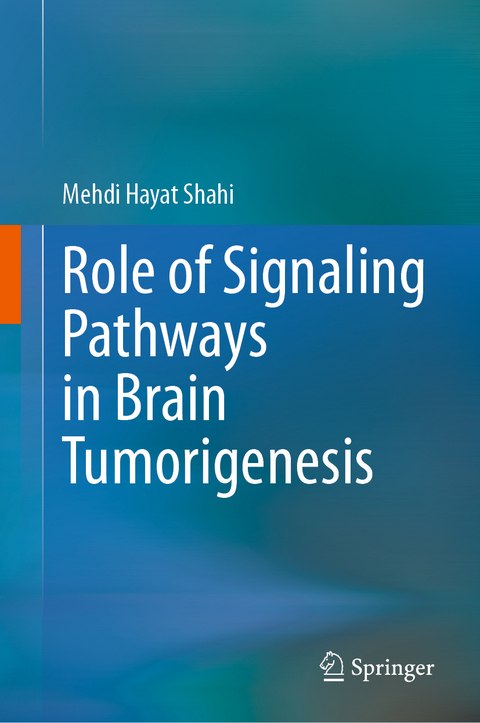
Role of Signaling Pathways in Brain Tumorigenesis
Springer Verlag, Singapore
978-981-15-8472-5 (ISBN)
Dr. Mehdi Hayat Shahi is an Assistant Professor at the Interdisciplinary Brain Research Centre, Aligarh Muslim University, Aligarh. Before joining AMU, he was a postdoctoral fellow at University of California, Davis, USA from 2010-2014. He was also an instructor at the University California Davis besides his postdoctoral research. From 2009-2010, he worked as a postdoctoral research fellow at Uppsala University, Uppsala, Sweden. His current research interests are focused on molecular neuro-oncology. Towards this pursuit, he is exploring the early stem cell biomarkers that can be utilized for the early diagnosis of brain tumours and other neurodegenerative diseases. He has been honored with many prestigious awards notably, Farah Deeba Award from the Indian Academy of Biomedical Sciences for an outstanding researcher in biomedical sciences, Outstanding Scientist Award for Neuro-oncology research from the Venus International Foundation. He has also served as a referee for thenumber of international journals, including, PLoS One and Tumour Biology. He has 12 years of research experience in molecular brain tumour biology and 4 years of teaching experience.He has published more than 21 research articles in the peer-reviewed international journals and co-authored two book chapters. He has served as a Co-chair of the Post-doctoral Scholar Association, University of California, USA, from 2013-2014. He is a member of many International Scientific Societies and Organizations importantly International Society for Neurochemistry, Indian Academy of Neurosciences, Indian Association for Cancer Research, and Indian Academy of Biomedical Sciences.
Introduction of Cell signalling Pathways and Brain Tumours.- Wnt cell signalling pathway and brain tumours development.- Notch cell signalling pathway and Brain Tumours.- Shh cell signalling pathway and paediatric brain tumour “Medulloblastoma”.- Role of Shh cell signalling pathway in “glioma”.- Role of stem cell marker NANOG in brain tumours development.- Stem cell factor Sox2 and Brain Tumours Development.- Role of Neurotrophins in brain tumor development.- Role of NFkβ in brain tumour development.- Role of Myc in brain tumours development.- Role of P53 in Medulloblastoma Development.- Role of Gene TP53 in glioblastoma development.- Role of HIF-1 in Brain Tumour Development.- EGFR and its role in glioma development.- Role of EFGR in medulloblastoma development.- Role of OCT4 in glioblastoma development.- Role of OCT4 in paediatric brain tumour “medulloblastoma” development.- Role of Mitogen activated protein (MAP) Kinase in paediatric brain tumour “medulloblastoma”
| Erscheinungsdatum | 21.11.2023 |
|---|---|
| Zusatzinfo | 1 Illustrations, black and white; XIII, 218 p. 1 illus. |
| Verlagsort | Singapore |
| Sprache | englisch |
| Maße | 155 x 235 mm |
| Themenwelt | Medizin / Pharmazie ► Medizinische Fachgebiete ► Onkologie |
| Studium ► 2. Studienabschnitt (Klinik) ► Humangenetik | |
| Naturwissenschaften ► Biologie ► Humanbiologie | |
| Naturwissenschaften ► Biologie ► Zoologie | |
| ISBN-10 | 981-15-8472-9 / 9811584729 |
| ISBN-13 | 978-981-15-8472-5 / 9789811584725 |
| Zustand | Neuware |
| Informationen gemäß Produktsicherheitsverordnung (GPSR) | |
| Haben Sie eine Frage zum Produkt? |
aus dem Bereich


